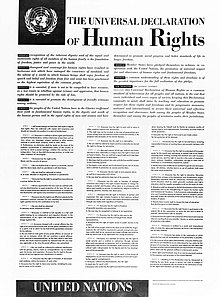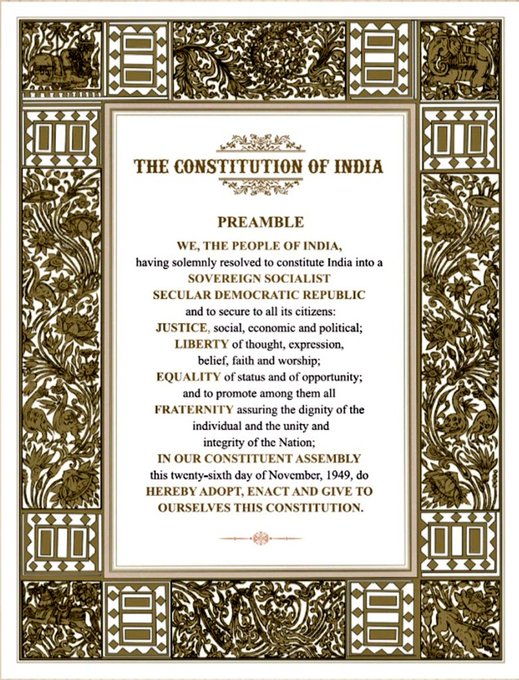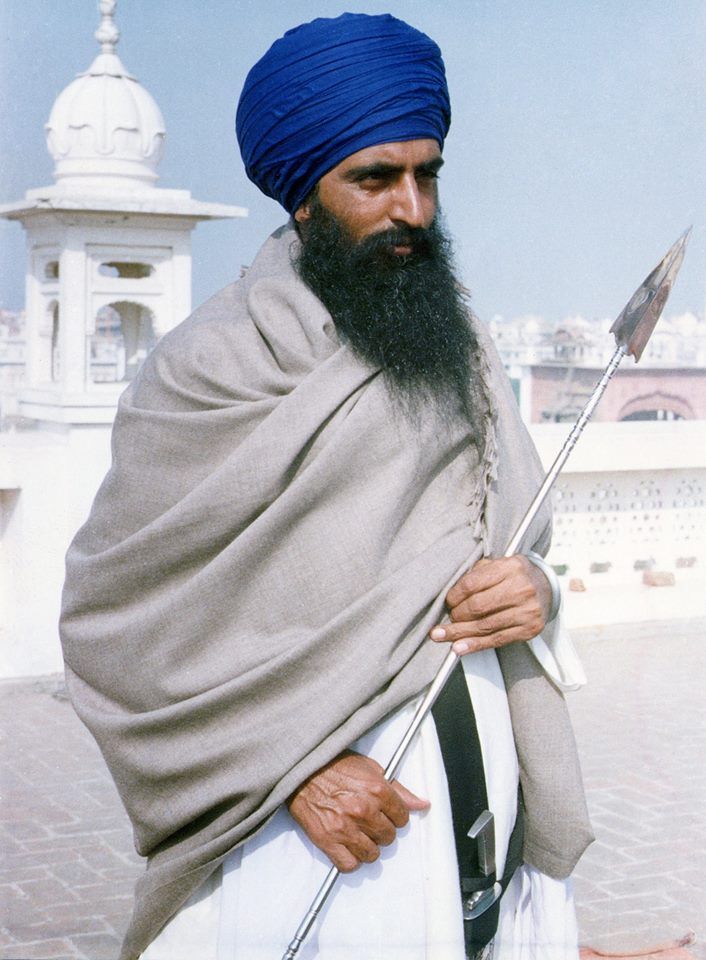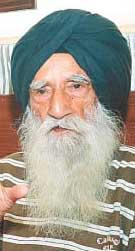Waiting for Justice in Delhi!
Justice Ajit Singh Bains rues the fact that despite steps by right-thinking activists and political leaders, justice eludes the victims of the November 1984 massacre. The Universal Declaration of Human Rights and the Indian constitution uphold rule of law and any state which digresses is likely to face consequences, argues the activist former Judge in this article coinciding with the 10th anniversary of the November tragedy in Delhi and beyond.
![Justice Ajit Singh Bains rues the fact that despite steps by right-thinking activists and political leaders, justice eludes the victims of the November 1984 massacre. The Universal Declaration of Human Rights and the Indian constitution uphold rule of law and any state which digresses is likely to face consequences, argues the activist former Judge in this article coinciding with the 10th anniversary of the November tragedy in Delhi and beyond. THE AIM OF A CIVILIZED STATE IS TO ENSURE JUSTICE […]](https://www.theworldsikhnews.com/wp-content/uploads/2022/02/November-1984-360x266.jpg)
THE AIM OF A CIVILIZED STATE IS TO ENSURE JUSTICE FOR ALL ITS CITIZENS. If a state fails to dispense justice, it is not correct to call it a civil state.
Delaying justice is a good strategy to deny justice. For the last 10 years, victims of the Delhi carnage are waiting for justice. The killers are not brought to trial and justice, inspite of the recommendations of the Delhi Chief Minister Madan Lal Khurana.
Thousands of innocent Sikh men, women and children lost their lives in Delhi and other Congress-ruled states in the first week of November 1984. Reports prepared by human rights activists like Justice Tarkunde, Prof. Kothari and Justice S.M. Sikri -former Chief Justice of India, have held that the massacre of Sikhs, rapes of women, abduction, kidnapping, arson and loot were planned and betrayed a pattern.
Justice V. M. Tarkunde, Prof. Rajni Kothari, Justice S. M. Sikri
The prominent among the guilty are H.K.L. Bhagat and Sajjan Kumar besides many police officials. The Khurana Government in Delhi appointed a commission under the Chairmanship of Justice R.S. Narula former Chief Justice of Punjab and Haryana High Court, soon after the government was formed. The Narula Commission has recommended that the report of the Jain Aggarwal committee be implemented.
H. K. L. Bhagat, Sajjan Kumar
The prominent among the guilty are H.K.L. Bhagat and Sajjan Kumar besides many police officials. The Khurana Government in Delhi appointed a commission under the Chairmanship of Justice R.S. Narula former Chief Justice of Punjab and Haryana High Court, soon after the government was formed. The Narula Commission has recommended that the report of the Jain Aggarwal committee be implemented.
Justice R. S. Narula and Madanlal Khurana
In spite of the Khurana Government’s earnest efforts, the Home Minister has not taken any steps to bring culprits to justice. It is really tragic that even after 10 years, the murderers are at large.
According to a former DIG, he could not impose a curfew or call in the army as he was forbidden to do so by instructions from the PM house. From this, it is quite evident that not only HKL Bhagat and Sajjan Kumar but the PM and Home Minister were also involved in the carnage.
In this subcontinent, there had been murders of Mahatma Gandhi in January 1948, Liayakhat Ali Khan first Prime Minister of Pakistan in 1951, Shiekh Mujeebhur Rehman, creator of Bangladesh along with his wife and children in 1975. But the community of the assassin never became the victim. It is only in the case of Sikhs that planned carnage was organised and no action taken against the guilty until today.
People of Delhi had earlier suffered such carnage during the period of Alauddin Khilji and Nadir Shah. But November 1984 carnage was most horrible as one community was singled out. Their homes were torched, women raped and Gurudwaras burnt. The Mughal carnage and holocaust were not against one community except in 1947 when in retaliation to the killings of Hindus and Sikhs of West Punjab, the Muslim community of Delhi became the victim.

Mohandas K. Gandhi, Liakat Ali Khan, Sheikh Mujibur Rehman, Indira Gandhi
In this sub-continent, there had been murders of Mahatma Gandhi in January 1948, Liakhat Ali Khan first Prime Minister of Pakistan in 1951, Shiekh Mujibhur Rehman, creator of Bangladesh along with his wife and children in 1975. But the community of the assassin never became the victim. It is only in the case of Sikhs that planned carnage was organised and no action taken against the guilty until today.
When justice is denied, dependence on repression comes easily to perpetuate the rule. Rule of law degenerates into that of men and is finally thrown off by violent revolutions. Bangladesh is the result of injustice done by the military rulers of Pakistan in this subcontinent.
 Precisely to stop such righteous but violent upsurge of people against tyrannical governments, the Universal Declaration of Human Rights was adopted by the United Nations on the 10th of December, 1948. India is a signatory to it. The preamble of the declaration of Human Rights reads: “Whereas it is essential if man is not to be compelled to have recourse, as a last resort, to rebellion against tyranny and oppression, that human rights should be protected by the rule of law.”
Precisely to stop such righteous but violent upsurge of people against tyrannical governments, the Universal Declaration of Human Rights was adopted by the United Nations on the 10th of December, 1948. India is a signatory to it. The preamble of the declaration of Human Rights reads: “Whereas it is essential if man is not to be compelled to have recourse, as a last resort, to rebellion against tyranny and oppression, that human rights should be protected by the rule of law.”
Even the preamble of our constitution leaves no doubt as to the aim and direction of the constitutional government: “WE THE PEOPLE OF INDIA having solemnly resolved to constitute India a SOVEREIGN SOCIALIST SECULAR DEMOCRATIC REPUBLIC and to secure to all its citizens JUSTICE social, economic and political LIBERTY of thought, expression, belief, faith and worship; EQUALITY of status and opportunity; and to promote among them all FRATERNITY assuring the dignity of the individual.”
the constitutional government: “WE THE PEOPLE OF INDIA having solemnly resolved to constitute India a SOVEREIGN SOCIALIST SECULAR DEMOCRATIC REPUBLIC and to secure to all its citizens JUSTICE social, economic and political LIBERTY of thought, expression, belief, faith and worship; EQUALITY of status and opportunity; and to promote among them all FRATERNITY assuring the dignity of the individual.”
India today is facing widespread rebellion and armed insurgency from Naxalite militancy to ethnic-inspired armed struggle. One thing is common in all the disturbed areas that justice was not available there. The only reason for the state and the ruler to exist is to deliver justice, otherwise, anarchy is certain. When the State is unable to provide justice, the people devise their own mechanism.
Parts of India are in turmoil because governments of the day are not fair to them. The deprived people have started looking towards the Naxalite leaders in Andhra Pradesh.
This article was published in The Spokesman Weekly, December 1994. This article has been retrieved from the archives of the Panjab Digital Library.
It is time we listen to Emerson “if the government is cruel, the governor’s life is not safe. If you tax too high, the revenue yields nothing. If you make the criminal code sanguinary, the juries will not convict. Nothing arbitrary, nothing artificial can endure.”
Parts of India are in turmoil because governments of the day are not fair to them. The deprived people have started looking towards the Naxalite leaders in Andhra Pradesh.
The whole of Uttarakhand is up in rebellion. India is a multiethnic, multilingual, multiracial, multireligious country, The only thing common between people of Punjab, Tamil Nadu, Bengal and other parts of India is that they were coerced by force into one country by the British Colonial rulers.
It is tragic that in spite of the Khurana Government’s recommendations and efforts, justice is not being done. The Delhi State Government has very limited powers, even less power than other states. This blatant act of injustice is alienating the people of Punjab. The Sikhs have very patriotic credentials. They had opted for India and were against the partition. But due to long neglect by the Congress Government, they are embittered. The invasion of the Golden Temple by the Indian Army was a historic blunder.
 The reason given by the Indira Gandhi Government was that it was essential to throw out the militants from the Golden Temple, though no list of the militants was given to SGPC to hand them over to the Government.
The reason given by the Indira Gandhi Government was that it was essential to throw out the militants from the Golden Temple, though no list of the militants was given to SGPC to hand them over to the Government.
In the first week of May 1984, Rajeev Gandhi had described Sant Jarnail Singh Bhindranwale as a religious saint. How come he became a terrorist in the first week of June 1984? In fact, operation Blue Star which was the starting point for alienation of the Sikh people proved to be the single most important factor for the rise of militancy leading to the assassination of Indira Gandhi and the genocide of the Sikhs.
Jarnail Singh Bhindranwale as a religious saint. How come he became a terrorist in the first week of June 1984? In fact, operation Blue Star which was the starting point for alienation of the Sikh people proved to be the single most important factor for the rise of militancy leading to the assassination of Indira Gandhi and the genocide of the Sikhs.
 Justice Ajit Singh Bains passed away on 11 February 2022. He was a human rights champion throughout his life.
Justice Ajit Singh Bains passed away on 11 February 2022. He was a human rights champion throughout his life.
